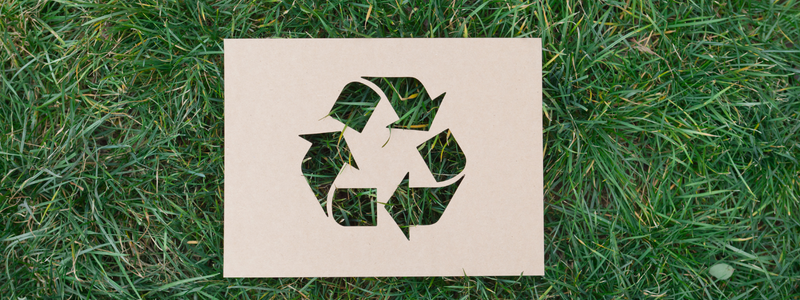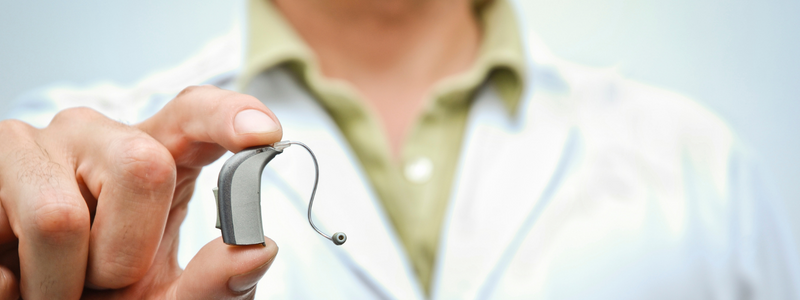Free home visits
with a local audiologist

Head of Customer Content Experience

Audiology Expert

#EarthDay #EarthDay2024 #GoGreen #SaveThePlanet #ClimateAction #EcoFriendly #SustainableLiving #ActOnClimate
Earth Day is an annual global observance celebrated on April 22nd, dedicated to raising awareness and promoting environmental protection and sustainability.
This event is an opportunity to bring people together from all walks of life to acknowledge the importance of preserving our planet and taking collective action to address environmental challenges.
Earth Day serves as a platform for individuals, organisations, and governments to initiate positive environmental changes, such as promoting renewable energy, reducing waste, conserving resources, and pushing for policies that support a healthier and more sustainable future.
In our Earth Day 2024 article, we discuss how to make sustainable choices when choosing your new hearing aids, how to recycle old hearing aids or hearing aid batteries, and where you can donate unused hearing aids.
Companies across various industries are increasingly recognising the importance of environmental sustainability and are taking steps to reduce their carbon footprint and minimise waste. Hearing aid manufacturers are no exception.
This Earth Day the theme is Planet vs Plastic so we will also explore how hearing aid manufacturers are working to lower their impact and help you to choose the more ecologically sound options.
Perhaps you have an old pair of hearing aids you don’t know what to do with or maybe you have been diagnosed with hearing loss and are wondering about the environmental impact of your new hearing aids. Read our guide to the sustainable practices and eco-friendly habits hearing aid manufacturers are adopting below.
Look for hearing aid manufacturers that prioritise re-using materials and using materials sourced from environmentally responsible suppliers.
For example, in 2022 Signia embarked on a significant initiative to minimise the environmental footprint of their packaging by initiating an internal policy aimed at gradually eliminating the use of virgin plastics.
Both Oticon and Signia have integrated FSC-certified paper into their product packaging. As of March 2022, all new Signia products are packaged using FSC paper.
Look for hearing aid manufacturers that aim to reduce packaging, for example, Signia has committed to refining their shipping packaging to minimise waste and implement a circular business model which aims to keep materials in the usage phase for as long as possible, reduce the extraction of natural resources, and reduce the generated wastes.
Similarly, Oticon has redesigned its packaging to reduce waste and increase sustainability, reusing their own scrap plastic for 10-20% of carrying case shells and their new cardboard instrument box has a 100% recycled core, and is covered with FSC-certified materials. This box is also manufactured in Europe with 100% certified green electricity.
Consider brands that invest in carbon offsetting initiatives to mitigate their environmental impact and support projects to reduce greenhouse gas emissions or capture carbon from the atmosphere. For example, Widex has developed their groundbreaking, eco-friendly headquarters in Denmark, to not only cover their own energy consumption but also deliver a surplus of energy back to the power grid.
Widex also utilises rainwater collection to maintain their groundwater aquifer and groundwater system while combining renewable energy from their own wind turbine power with and solar cells.
All manufacturers stocked by Hearing Aid UK offer rechargeable hearing aid models which are great options for a sustainable alternative to disposable batteries and for reducing waste.
It was estimated in 2014 that more than 1.4 billion disposable hearing aid batteries end their life in landfills around the world each year, choosing a rechargeable hearing aid or batteries is a great step to take to reduce waste.
It is also worth noting that as hearing aid technology develops, integrated accessories mean less packaging and materials used. You can ask your audiologist for further information about your requirements and which hearing aids have the best features built-in for your requirements.

If you do prefer battery hearing aids over rechargeable models, there are several easy ways to get the most out of your batteries.
By adding these small actions to your day-to-day routine, you can significantly lengthen the lifespan of your hearing aid batteries, reducing costs if you pay for them and the amount of waste produced. Here are our favourite tips:
Let the batteries rest after removing the sticker tab. By not putting them directly into the hearing aid allows the air to properly activate the batteries which can considerably extend their lifespan.
Batteries are best stored in their original packaging, ideally in a place that is cool and dry. Humidity and heat can affect the power of the batteries.
When not in use conserve your batteries’ lifespan by leaving the hearing aid doors open, for example when they are removed for sleeping.
My hearing aids use disposable batteries, once they go flat can they be recycled? Yes! Most domestic health appliances such as hearing aids use disposable zinc-air batteries. All household batteries, including the ‘button’ style batteries in hearing aids, can be recycled.
Remember, they should not be put in household waste or recycling bins, however, collection points for your batteries can be found at doctors’ surgeries and audiology departments.
Several charities such as Cancer Research also have battery recycling schemes with collection points in their shops.

These batteries are generally only available in Behind-the-Ear style hearing aids. Some models of digital hearing aids are designed to be directly charged for convenience, such as by being plugged into the mains or placed on a charging station. They are usually recharged overnight whilst removed for sleeping.

How can I responsibly dispose of old hearing aids I don’t need anymore? As mentioned earlier, there are often collection points at doctor’s surgeries and audiology departments for old hearing aids along with old batteries. The NHS will accept used hearing aids they provided and refurbish them for future use.
For all other hearing aids donating them to charity will save the waste from landfills and help those that need it most, read more about hearing charity All Ears Cambodia below.
All Ears Cambodia is an overseas hearing health charity run by Glyn Vaughan, based in South Yorkshire, set up to deal with all aspects of audiological issues for those who need aid in the poorest communities of this developing country.
The charity is currently accepting BTE and RICS types of hearing aids which will be repaired and refurbished, providing essential medical equipment to all ages enabling them to live in health, peace, and dignity.
You can post your unwanted hearing aids to:
Glyn Vaughan
All Ears Cambodia
21 St. Georges’s Drive
Brinsworrth
South Yorkshire
S60 5NG
For more information, email [email protected]

So, whether you are newly diagnosed with hearing loss, and you were worried about the environmental impact this may have, or you have a set of old hearing aids after your latest upgrade you were wondering what to do with, there are plenty of options for our customers, old and new.
Donating your old hearing aids to charities such as All Ears Cambodia is just one of the ways you can help the environment whilst also contributing to people unable to access proper hearing healthcare.
From getting the most out of your disposable batteries, and using rechargeable batteries correctly to recycling hearing aids, there are many simple and convenient ways to be sustainable and go green this Earth Day, 2024.
Are your hearing aids not supporting you enough anymore? Thinking of upgrading your hearing aids? You might need to consider upgrading your hearing aids. Please call us free on 0800 567 7621 to speak with one of our audiologists who can support you locally.
Do not spend hundreds of pounds without getting a second opinion from us.
 Not only are the prices great, but the service is fantastic! Many thanks to your team.
Not only are the prices great, but the service is fantastic! Many thanks to your team.If you are looking at this page then it is likely that an audiologist has suggested that you purchase this particular hearing aid, so is this the best model for you?
In general, any audiologist will always be recommending to you the model that best suits your needs. Here is a useful check list to make sure that is the case.
If in doubt, feel free to give us a call. That's what we're here for.
If you have a significant hearing loss in both ears, you should be wearing two hearing aids. Here are the audiological reasons why:
Localisation. The brain decodes information from both ears and compares and contrasts them. By analysing the miniscule time delays as well as the difference in loudness of each sound reaching the ears, the person is able to accurately locate a sound source. Simply put, if you have better hearing on one side than the other, you can't accurately tell what direction sounds are coming from.
Less amplification required. A phenomena known as “binaural summation” means that the hearing aids can be set at a lower and more natural volume setting than than if you wore only one hearing aid.
Head shadow effect. High frequencies, the part of your hearing that gives clarity and meaning to speech sounds, cannot bend around your head. Only low frequencies can. Therefore if someone is talking on your unaided side you are likely to hear that they are speaking, but be unable to tell what they have said.
Noise reduction. The brain has it’s own built in noise reduction which is only really effective when it is receiving information from both ears. If only one ear is aided, even with the best hearing aid in the world, it will be difficult for you to hear in background noise as your brain is trying to retain all of the sounds (including background noise) rather than filtering it out.
Sound quality. We are designed to hear in stereo. Only hearing from one side sounds a lot less natural to us.
For most people, the main benefit of a rechargeable hearing aid is simple convenience. We are used to plugging in our phones and other devices overnight for them to charge up.
For anybody with poor dexterity or issues with their fingers, having a rechargeable aid makes a huge difference as normal hearing aid batteries are quite small and some people find them fiddly to change.
One downside is that if you forget to charge your hearing aid, then it is a problem that can't be instantly fixed. For most a 30 minute charge will get you at least two or three hours of hearing, but if you are the type of person who is likely to forget to plug them in regularly then you're probably better off with standard batteries.
Rechargeable aids are also a little bit bigger and are only available in behind the ear models.
Finally, just like with a mobile phone, the amount of charge you get on day one is not going to be the same as you get a few years down the line. Be sure to ask what the policy is with the manufacturer warranty when it comes to replacing the battery.
For most people, the answer is yes. But it's never that simple.
The majority of hearing problems affect the high frequencies a lot more than the low ones. Therefore open fitting hearing aids sound a lot more natural and ones that block your ears up can make your own voice sound like you are talking with your head in a bucket. Therefore in-ear aids tend to be less natural.
However the true answer is we can't tell until we have had a look in your ears to assess the size of your ear canal, and until we have tested your hearing to see which frequencies are being affected.
People with wider ear canals tend to have more flexibility, also there are open fitting modular CIC hearing aids now that do not block your ears.
There is also the age old rule to consider, that a hearing aid will not help you if it's sat in the drawer gathering dust. If the only hearing aid you would be happy wearing is one that people can't see, then that's what you should get.
Most people can adapt to any type of hearing aid, as long as they know what to expect. Have an honest conversation with your audiologist as to what your needs are.
Generally speaking, six or more. Unless it's none at all.
The number of channels a hearing aid has is often a simplistic way an audiologist will use to explain why one hearing aid is better than another, but channels are complex and it is really not that straightforward.
Hearing aids amplify sounds of different frequencies by different amounts. Most people have lost more high frequencies than low and therefore need more amplification in the high frequencies. The range of sounds you hear are split into frequency bands or channels and the hearing aids are set to provide the right amount of hearing at each frequency level.
Less than six channels and this cannot be done with much accuracy, so six is the magic number. However, a six channel aid is typically very basic with few other features and is suitable only for hearing a single speaker in a quiet room. The number of channels is not what you should be looking at, it's more the rest of the technology that comes with them.
As a final note, different manufacturers have different approaches. One method is not necessarily better than any other. For example some manufacturers have as many as 64 channels in their top aids. Most tend to have between 17 and 20. One manufacturer has no channels at all.
Hearing aids are easily lost, misplaced or damaged and typically are one of the most expensive personal possessions an individual can own. We offer hearing aid warranty cover for £80 per year per aid. Find out more here
All our audiologists use the very latest technology and provide the full range of tests to accurately measure your hearing for free. Find out about what we offer all our customers here
Hearing Aid UK offers all their customers free home visiting services and home visits for hearing aids - Including hearing tests, fittings, maintenance, check-ups and much more in the comfort of your own home and at your convenience. Find out more information here
Here, at Hearing Aid UK, we are dedicated to offering low hearing aid prices. We achieve this by having no head office and low marketing costs. Our hearing aid prices are amongst the lowest you will find anywhere in the world.
When we refer to a product as 'Latest Launch', we mean it is the latest to be released on the market.
When we refer to a product as 'New', we mean that the product is the newest hearing aid model on the market.
When we refer to a product as 'Superseded', we mean that there is a newer range available which replaces and improves on this product.
When we refer to a product as an 'Older Model', we mean that it is has been superseded by at least two more recent hearing aid ranges.